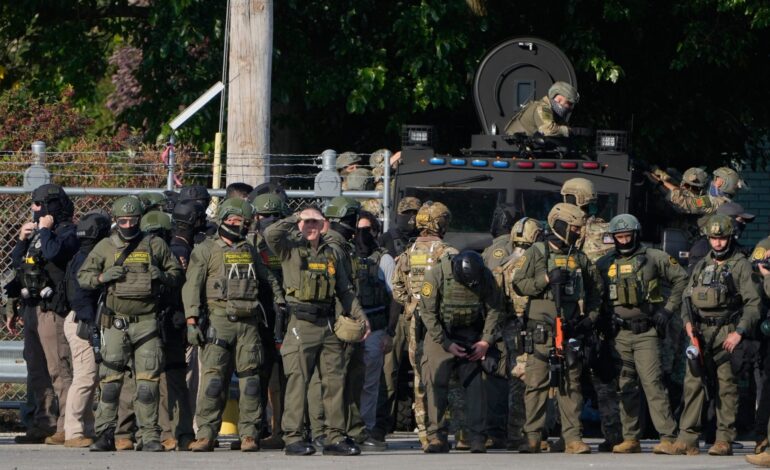Trump Federalizes 300 Illinois National Guard Members Amid Tensions

The administration of President Donald Trump has announced plans to federalize 300 members of the Illinois National Guard, according to statements from Illinois Governor JB Pritzker. This decision, communicated by the Pentagon to the governor’s office, has raised significant concerns about the implications for state governance and public safety.
Governor Pritzker expressed his strong disapproval of the decision on Saturday, stating that the federal government had issued an ultimatum: “call up your troops, or we will.” He described the move as “absolutely outrageous and un-American,” arguing that it undermines the authority of state leaders to manage their own resources. Pritzker emphasized that the deployment would disrupt the lives of National Guard members and their families, pulling them away from their regular jobs and duties.
The federalization of these troops is part of a broader trend of increased federal law enforcement presence in various states. Similar actions were taken earlier this year when the Trump administration deployed National Guard members to Los Angeles and implemented federal control measures in Washington, D.C.. In Tennessee, National Guard troops are expected to assist local police in Memphis.
Pritzker characterized the federal government’s actions as a “manufactured performance” intended to exert control rather than ensure safety. He noted that local law enforcement agencies had been effectively coordinating efforts to secure the U.S. Immigration and Customs Enforcement’s Broadview facility, located on the outskirts of Chicago, without federal intervention. This facility has been a focal point for protests against immigration policies, with reports indicating that federal officials arrested 13 individuals during demonstrations on Friday.
The situation in Illinois mirrors ongoing tensions in other cities. Last month, Trump announced the deployment of federal troops to Portland, Oregon, labeling the city as “war-ravaged.” This claim has been disputed by local officials, who have pointed out that many of the images used by Trump to justify his actions stem from incidents in 2020, following the death of George Floyd. Legal actions have been initiated to block these troop deployments, with a ruling from U.S. District Judge Karin J. Immergut expected soon.
In Oregon, Trump has federalized 200 National Guard troops, although they have not yet moved into Portland. Instead, they have been observed training on the coast in anticipation of potential deployment.
The escalating military presence within domestic borders raises important questions about the balance of power between state and federal authorities. As this situation develops, it will be crucial to monitor both state responses and the implications for local communities.






